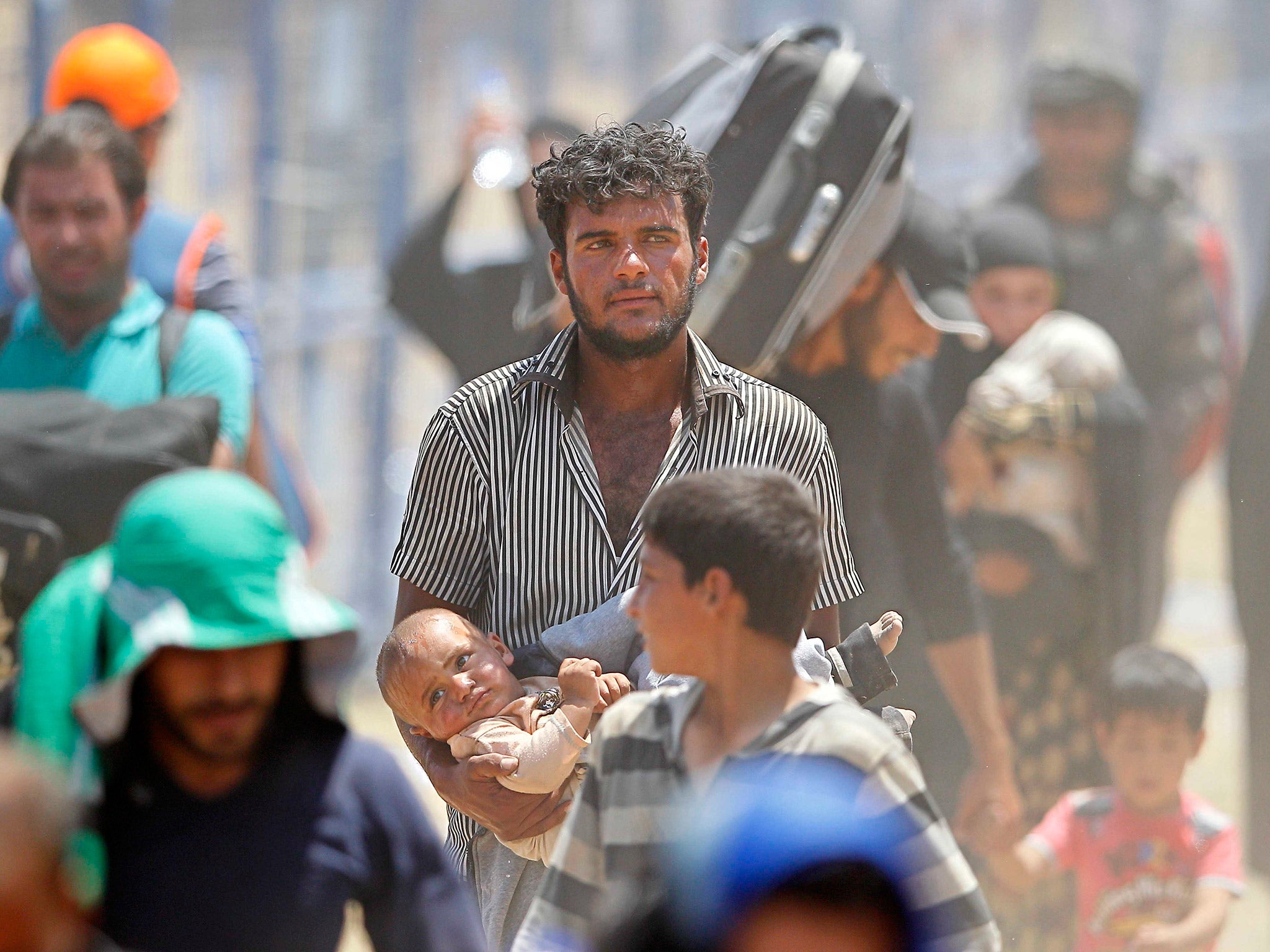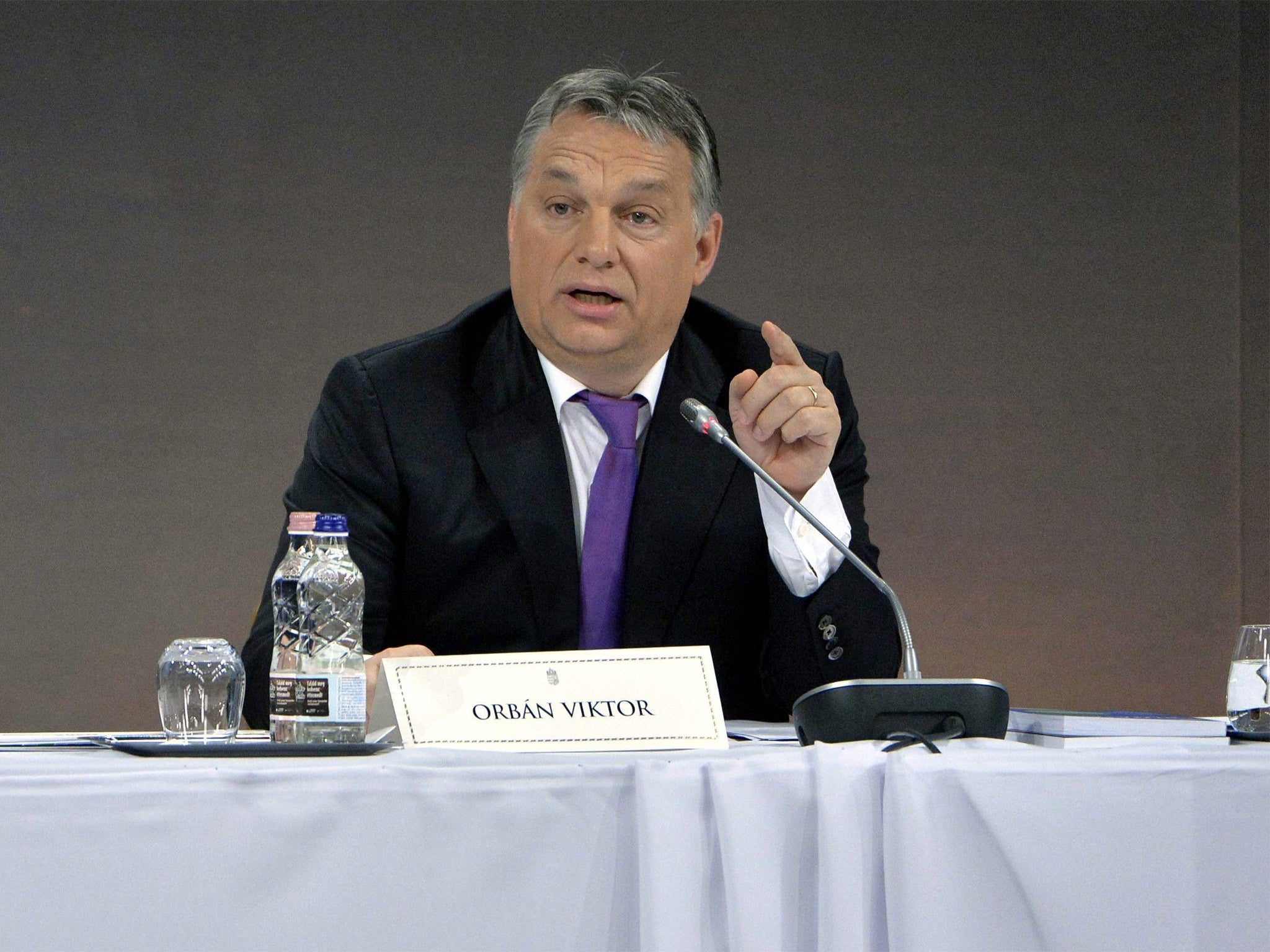Germany made secret pact with Turkey for the EU to take half a million Syrian refugees, says Hungarian Prime Minister
EU officials vociferously deny the suggestions of a secret deal with Ankara

Germany has struck a secret pact with Turkey for the European Union to take in as many as half a million Syrians currently living in Turkish refugee camps, Hungarian Prime Minister Viktor Orban has claimed.
While EU officials were vociferously denying the suggestions of a secret deal with Ankara, they did not dispute that efforts are being made to manage the resettlement of Syrians in Europe more efficiently.
Speaking in Budapest, Mr Orban said an EU agreement on the transfer of refugees from Turkey would be announced in Berlin on 3 December or the day after. “A nasty surprise lies in wait for Europe,” he said.
Mr Orban claimed that the deal was endorsed just before the EU-Turkey summit in Brussels on 29 November, when German Chancellor Angela Merkel hosted a mini-summit with seven other EU leaders prepared to resettle refugees from Turkish camps next year.

While EU officials said the eight leaders – from Germany, Austria, Belgium, Finland, Greece, Luxembourg, the Netherlands, and Sweden – discussed resettling around 400,000 Syrian refugees in Turkey in the EU, they insisted there was nothing secret or new about the proposals. Ms Merkel said on 29 November that the idea was to “replace illegal migration with legal migration… it’s an uphill struggle, but it’s well worth the effort”.
Resettlement was specifically mentioned in the €3bn deal the EU struck with Turkey on 29 November to help stop the 2.5 million Syrians currently living in Turkish refugee camps from heading to the EU.
European Commission officials said the idea was to eventually bring the refugees to Europe in a managed, open, and voluntarily process – and that recalcitrant countries such as Hungary would not be obliged to join in. “Those member states willing to join this common undertaking will tell us if they would like to be part of this,” said one official.
Nonetheless, Mr Orban, who has opposed the idea of EU refugee quotas from the outset, said Hungary, Poland, Slovakia and the Czech Republic would face intense pressure from the EU to take in more refugees. “We cannot accept this,” he insisted.
Elizabeth Collett, director of the Migration Policy Institute Europe said the initiative made sense after the painful EU arguments in September on relocation quotas.
“Germany is rightly thinking it does not want a tortuous process of going through the 28 countries,” she said.
“This would be a deal that works for both the EU and Turkey: when you resettle, you do it in a pragmatic, humane, managed way that prioritises the most vulnerable.”
Ms Collett said Mr Orban was deliberately stirring resentment against both refugees and the EU itself.
Slovakia which has also loudly opposed refugee quotas, has lodged a lawsuit at the European Court of Justice against the EU’s relocation scheme, which aims to redistribute 160,000 asylum seekers from Italy and Greece to other EU member states.
Meanwhile, the EU took steps to criminalise people who travel abroad for terrorist purposes, meaning suspects would not have to commit an act of terror to be convicted of terrorism. The move comes as part of a series of new security measures in the wake of the Paris attacks, where several of the terrorists had travelled back and forth to Syria. The proposals unveiled by the Commission would also criminalise the funding, organisation and facilitation of terror-related travel.
Join our commenting forum
Join thought-provoking conversations, follow other Independent readers and see their replies
Comments